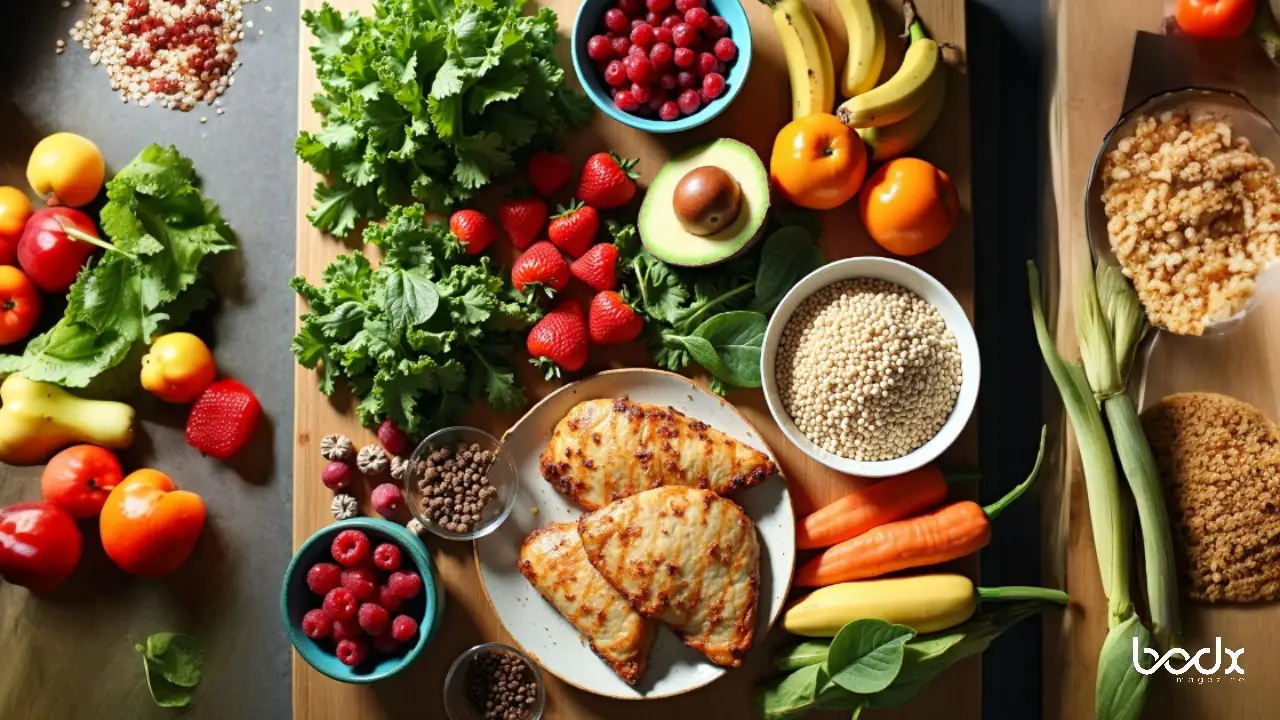Introduction
In today’s fast-paced world, maintaining a balanced diet can be challenging. However, balanced eating is crucial for overall health and well-being. This comprehensive guide will provide practical nutrition and diet tips for everyone, ensuring you can make informed choices about your diet. Let’s dive into the essentials of balanced eating and how you can incorporate these tips into your daily life.
Understanding Balanced Eating
What is Balanced Eating?
Balanced eating involves consuming a variety of foods in the right proportions to provide your body with the essential nutrients it needs. This includes carbohydrates, proteins, fats, vitamins, and minerals. A balanced diet helps maintain a healthy weight, supports bodily functions, and reduces the risk of chronic diseases.
The Importance of Macronutrients
Carbohydrates
Carbohydrates are the body’s primary energy source. They are found in foods like bread, rice, pasta, fruits, and vegetables. It’s essential to choose complex carbohydrates, such as whole grains, over simple carbohydrates like sugary snacks, as they provide sustained energy and are rich in fiber.
Proteins
Proteins are vital for building and repairing tissues. They are found in meat, fish, eggs, dairy products, legumes, and nuts. Including a variety of protein sources in your diet ensures you get all the essential amino acids your body needs.
Fats
Fats are necessary for absorbing fat-soluble vitamins and providing energy. Healthy fats, such as those found in avocados, nuts, seeds, and olive oil, should be prioritized over saturated and trans fats found in processed foods.
The Role of Micronutrients
Vitamins
Vitamins are organic compounds that support various bodily functions, including immune response, energy production, and bone health. Consuming a variety of fruits and vegetables ensures you get a wide range of vitamins.
Minerals
Minerals like calcium, potassium, and iron are crucial for bone health, muscle function, and oxygen transport. Dairy products, leafy greens, and lean meats are excellent sources of essential minerals.
Creating a Balanced Meal Plan
Planning Your Meals
Breakfast
Start your day with a nutritious breakfast that includes a balance of carbohydrates, proteins, and fats. For example, a bowl of oatmeal topped with fresh berries and a handful of nuts provides sustained energy and essential nutrients.
Lunch
For lunch, aim for a combination of lean proteins, whole grains, and vegetables. A grilled chicken salad with quinoa and a variety of colorful vegetables is a great option.
Dinner
Dinner should be lighter but still balanced. Consider a serving of grilled fish with steamed vegetables and a side of brown rice.
Snacks
Healthy snacks can help maintain energy levels throughout the day. Opt for fruits, yogurt, or a handful of nuts instead of sugary or processed snacks.
Portion Control
Understanding portion sizes is crucial for balanced eating. Use smaller plates, measure your food, and avoid second helpings to prevent overeating.
Hydration
Staying hydrated is essential for overall health. Aim to drink at least eight glasses of water a day. Herbal teas and water-rich fruits and vegetables can also contribute to your daily hydration needs.
Practical Nutrition Tips
Reading Food Labels
Learning to read food labels can help you make healthier choices. Look for products with lower levels of added sugars, sodium, and unhealthy fats. Pay attention to serving sizes and ingredient lists to avoid hidden unhealthy ingredients.
Cooking at Home
Cooking at home allows you to control the ingredients and portion sizes of your meals. Experiment with new recipes and cooking methods to make healthy eating enjoyable and sustainable.
Mindful Eating
Mindful eating involves paying attention to your hunger and fullness cues, eating slowly, and savoring each bite. This practice can help prevent overeating and improve your relationship with food.
Incorporating Superfoods
Superfoods are nutrient-dense foods that offer numerous health benefits. Incorporate foods like blueberries, spinach, salmon, and chia seeds into your diet to boost your nutrient intake.
Balancing Indulgences
It’s okay to indulge in your favorite treats occasionally. The key is moderation. Enjoying a small piece of chocolate or a scoop of ice cream can be part of a balanced diet without derailing your healthy eating habits.
Special Dietary Considerations
Vegetarian and Vegan Diets
Vegetarian and vegan diets can be healthy and balanced with careful planning. Ensure you get enough protein, iron, calcium, and vitamin B12 from plant-based sources like legumes, tofu, fortified foods, and supplements if necessary.
Gluten-Free Diets
For those with celiac disease or gluten sensitivity, a gluten-free diet is essential. Focus on naturally gluten-free foods like fruits, vegetables, lean proteins, and gluten-free grains like quinoa and rice.
Low-Carb Diets
Low-carb diets can be effective for weight loss and blood sugar control. Prioritize healthy fats and proteins while limiting refined carbohydrates. Include plenty of non-starchy vegetables to ensure you get enough fiber and nutrients.
Diets for Specific Health Conditions
Certain health conditions, such as diabetes, hypertension, and heart disease, may require specific dietary adjustments. Consult with a healthcare professional or registered dietitian to create a personalized meal plan that meets your needs.
Conclusion
Balanced eating is about making informed choices and finding a sustainable approach to nutrition that works for you. By understanding the importance of macronutrients and micronutrients, planning balanced meals, and incorporating practical nutrition tips, you can achieve and maintain a healthy diet. Remember, it’s not about perfection but about making consistent, healthy choices that support your overall well-being.
FAQs
1. What are the benefits of a balanced diet?
A balanced diet provides essential nutrients, supports overall health, maintains a healthy weight, and reduces the risk of chronic diseases.
2. How can I ensure I’m getting enough vitamins and minerals?
Consume a variety of fruits, vegetables, whole grains, lean proteins, and dairy products to ensure you get a wide range of vitamins and minerals.
3. What are some healthy snack options?
Healthy snack options include fruits, yogurt, nuts, seeds, and whole-grain crackers.
4. How can I make healthier choices when eating out?
Choose dishes that are grilled, baked, or steamed instead of fried. Opt for salads, lean proteins, and whole grains, and ask for dressings and sauces on the side.
5. What is mindful eating?
Mindful eating involves paying attention to your hunger and fullness cues, eating slowly, and savoring each bite to prevent overeating and improve your relationship with food.
6. How can I incorporate more vegetables into my diet?
Add vegetables to soups, stews, and casseroles, include them in smoothies, and use them as snacks with hummus or yogurt dip.
7. What are some tips for cooking at home?
Plan your meals, use fresh ingredients, experiment with new recipes, and control portion sizes to make healthy eating enjoyable and sustainable.
8. How much water should I drink daily?
Aim to drink at least eight glasses of water a day, and include water-rich fruits and vegetables in your diet to stay hydrated.
9. What are superfoods, and why are they important?
Superfoods are nutrient-dense foods that offer numerous health benefits. Incorporating them into your diet can boost your nutrient intake and support overall health.
10. How can I balance indulgences in my diet?
Enjoy your favorite treats in moderation. Incorporate small portions of indulgent foods into your diet without derailing your healthy eating habits.

















